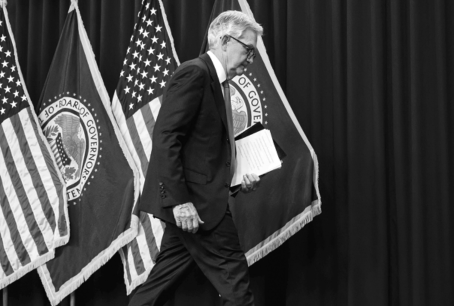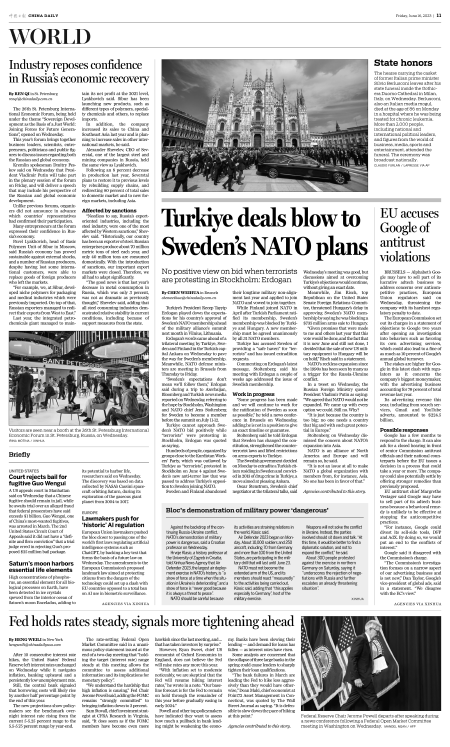
Federal Reserve Chair Jerome Powell departs after speaking during a news conference following a Federal Open Market Committee meeting in Washington on Wednesday.
After 10 consecutive interest rate hikes, the United States' Federal Reserve left interest rates unchanged on Wednesday while it navigates inflation, banking upheaval and a persistently low unemployment rate.
Still, the central bank signaled that borrowing costs will likely rise by another half percentage point by the end of this year.
The new projections show policymakers see the benchmark overnight interest rate rising from the current 5-5.25 percent range to the 5.5-5.75 percent range by year-end.
The rate-setting Federal Open Market Committee said in a unanimous policy statement issued at the end of a two-day meeting that "holding the target (interest rate) range steady at this meeting allows the committee to assess additional information and its implications for monetary policy".
"We understand the hardship that high inflation is causing," Fed Chair Jerome Powell said, adding the FOMC remains "strongly committed" to bringing inflation down to 2 percent.
Sam Stovall, chief investment strategist at CFRA Research in Virginia, said, "It does seem as if the FOMC members have become even more hawkish since the last meeting, and ...that has taken investors by surprise."
However, Ryan Sweet, chief US economist of Oxford Economics in England, does not believe the Fed will raise rates any more this year.
"With inflation set to moderate noticeably, we are skeptical that the Fed will resume hiking interest rates," he wrote in a note. "Our baseline forecast is for the Fed to remain on hold through the remainder of this year before gradually easing in early 2024."
Powell and other top policymakers have indicated they want to assess how much a pullback in bank lending might be weakening the economy. Banks have been slowing their lending — and demand for loans has fallen — as interest rates have risen.
Some analysts are concerned that the collapse of three large banks in the spring could cause lenders to sharply tighten their loan qualifications.
"The bank failures in March are leading the Fed to hike less aggressively than they would have otherwise," Dean Maki, chief economist at Point72 Asset Management in Connecticut, was quoted by The Wall Street Journal as saying. "It is defensible to slow down the pace of hiking at this point."
Agencies contributed to this story.
hengweili@chinadailyusa.com

